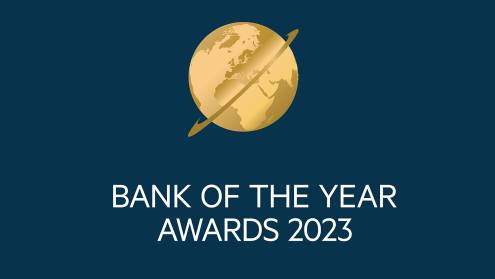Founded in 2021, Aliph Capital announced $125m in funding in October from Abu Dhabi sovereign wealth fund ADQ, and acquired UAE-based business The Pet Shop in November.
Q: How does Aliph Capital fit in with private equity trends in the Middle East?
A: I’ve worked in and around private equity in the Middle East for more than 20 years now. During that period, the sector has developed considerably in both the region and across emerging markets more generally. While there have been ups and downs, as it’s still a very nascent industry with a small number of players, there’s an incredible opportunity to develop the space.
It’s staggering how much capital the [Gulf Co-operation Council (GCC)] allocates asset managers worldwide, yet there are not many independent alternative asset managers to speak of based out of the region. So I feel that it’s important to nurture and develop the local private equity space.
To that end, I founded Aliph Capital in 2021 with the overall ambition of developing a GCC-led regional asset manager at a time that coincides with a significant and deliberate inward shift of the investment focus of GCC governments, which goes hand-in-hand with the larger economic and social reforms in the region. This combination of factors has created a very fertile investment environment in the GCC.
In particular, we felt there was a gap in the market for funding for mid-caps and smaller businesses. Larger companies in the region are generally well served by a range of funding options, including sovereign wealth funds, banks and capital markets. The tech/venture capital space has seen a lot of inflow of both local and to some extent international capital, while the good old mid-sized companies offering real goods and services struggle to access capital and capability. Moreover, these companies are at a far higher risk of disruption and fewer have a sustainable operational and digital infrastructure than their larger peers.
That’s why we launched Aliph Capital as a fund focused on GCC-based mid-sized companies, pursuing an active strategy that helps these companies transform operationally, expand their markets and undergo digital transformation.
Q: What sectors are you particularly interested in?
A: Following our buyout of The Pet Shop last November, we’re looking at further opportunities within this fragmented space. We also like health and wellness, where we see decentralisation, consumerisation and wellness trends driving opportunities for specialised clinic chains, care at home and care at work, and wellness and fitness, thereby going beyond ‘big box’ hospitals.
The consumerisation of healthcare in the GCC is a significant trend, and there are a number of interesting wellness businesses that straddle the border between medicine and fitness.
Transport and logistics are also very much on our radar. The development of third-party and fourth-party logistics models is a relatively recent phenomenon in our region, as bigger businesses have historically tended to build up their own logistics infrastructure in the absence of deeper supply chain capability.
As manufacturing becomes ever more localised, and we seek to shorten and localise our supply chains, there’s going to be a greater need for outsourced logistics and specialisation – for example ambient vs cold chain, storage and handling vs last mile fulfilment, and so on.
We’re also looking at businesses in the broader education space in the region.
Q: You’re one of the few female private equity CEOs in the Middle East, while Aliph’s head of investments is also a woman. Does this affect your investment strategy at all?
A: All through my career since I started out as an investment analyst, I’ve called on portfolio companies to have more women: at the C-suite level, in middle management and across the company to support the inclusion of women at all levels of the workforce.
First and foremost, however, we at Aliph Capital are a private equity fund that focuses on talent and brings an active investment approach to mid-cap companies, and we just happen to be led by women.
In the Middle East, investors haven’t been accustomed to having women manage their money, but things are changing
More broadly, there has been amazing progress for women in recent years in both financial services and in society more broadly. First Abu Dhabi Bank’s group CEO is a woman, as is Saudi Arabia’s ambassador to the US. The changes in the past few years in Saudi Arabia in particular have been extraordinary; the glass ceiling that was there for women, particularly in their 20s and 30s looking at career growth opportunities, is no longer a given.
Within the private equity space, less than 12% of senior positions worldwide are held by women, which is only a minor increase compared with when I started my career around 20 years ago, so there’s still work to be done in the industry in general.
In the Middle East, investors haven’t been accustomed to having women manage their money for them in the private equity space, but things are changing as women hold more corporate leadership positions more generally, and especially within financial services and government.
Q: How do you assess the current stage of the capital cycle in the region given that oil prices remain elevated?
A: It’s no secret that the impact of economic cycles can be more pronounced in our part of the world given the role of oil revenues. As I mentioned earlier, there’s a lot of capital that’s being invested into diversification efforts in this particular upcycle in a bid to smooth out the volatility that comes with fluctuations in oil prices.
Given the sustained high prices that we’ve seen recently, combined with policy changes, states have solid balance sheets and more diversified income streams than they had previously, which should make the ride less bumpy going forward.
Of course being in the private equity space we plan for such cycles, and we plan investment strategies and hold periods to enable businesses to ride out any short-term cyclicality in the market.













